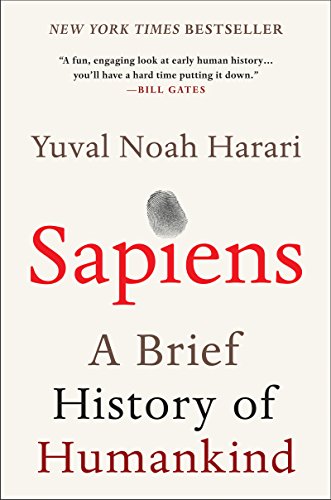

This article is an excerpt from the Shortform summary of "Sapiens: A Brief History of Humankind" by Yuval Noah Harari. Shortform has the world's best summaries of books you should be reading.
Like this article? Sign up for a free trial here .
What is Peugeot’s origin story? What does its story say about how we treat imaginary entities?
We’ll cover the origin of Peugeot and what it means to be a limited liability company.
Peugeot’s Origin and the Power of Entities that Don’t Exist
Let’s ask an obvious question: Does the carmaker Peugeot exist?
It must. The corporation employs 200,000 people, makes 1.5 million cars a year, and earns about 55 billion euros annually.
- But in what way does Peugeot exist? Can you locate it in physical reality? The company isn’t its cars. The cars could all go away and the company would still exist.
- The company isn’t its employees, its factories, or its machinery. A natural disaster could wipe out every factory and every employee, and the company would still exist and be able to get a loan, build new factories, and hire new workers.
- The company is not its founder (who’s dead) or its managers and shareholders, who could be dismissed today without threatening the company’s existence.
So how can it exist? Peugeot, as with other corporations, has no existence in the physical world. It’s an idea, a collective myth we all agree to believe in. This myth is so powerful that this imaginary entity can buy property, pay taxes, open a bank account, and be bound by laws.
We grant these legal fictions, called limited liability companies, the same rights as people (the concept of “rights” is a fiction, too). We treat LLCs like flesh-and-blood people.
Before we look at Peugeot’s origin, it’s important to understand the fiction of LLCs.
Peugeot’s Origin and the Birth of Limited Liability Companies
The Problem
It wasn’t always the case that a business owner could divorce himself from his business. In the 13th century, before the (imaginary) existence of LLCs and Peugeot’s origin, if you owned a business, you were personally liable for everything that happened with that business.
So if your product broke, your customer could sue you personally. If you borrowed money and the business flopped, you had to pay back the debt out of pocket. If you couldn’t, you might have to sell your personal property or sell your children into servitude.
When you are your business and your business is you, starting a business is a scary prospect. People didn’t want to take the financial risk, and this impeded entrepreneurship.
The Solution
The solution to this problem was limited liability companies, like Peugeot. The company became an entity independent of its founder, manager, or any other person or physical entity.
We’re so used to these corporations that we forget they’re imaginary, existing only in our minds and invented only to shield their founders from too much personal responsibility.
Back to Peugeot‘s Origin
Often, the problem with imaginary things is that it’s hard to get others to believe them (their power comes only with collective belief in them). But in France in the 1890s, if you got a lawyer to go through the ritual required of the French legal code (another fiction), involving writing down the correct words on a fancy sheet of paper and signing it, you could create a totally imaginary company that millions of French citizens would tacitly agree to believe.
French law validated the existence of Peugeot. In other words, one imaginary entity legitimized another imaginary entity. This was Peugeot’s origin. Without the shared belief in its fiction, it wouldn’t exist.
What’s important about the ability to create fictions is the ability to create collective fictions, fictions everyone believes. These collective myths allow people who’ve never met and otherwise would have nothing in common to cooperate under shared assumptions and goals.
Collective fictions, like Peugeot’s origin, aren’t the same as lies. These aren’t lies because everyone collectively believes them. For example, members of the UN weren’t lying when they insisted that Libya’s government respect the rights of its citizens, even though Libya, human rights, and the UN itself are all imaginary realities, or social constructs. The borders that separate Libya from other countries are man-made, not physical features of the landscape; human rights is a concept many of us believe in, but rights don’t exist outside our collective imagination; and, like Libya, the UN is a social construct, an organization that has no physical existence.
While humans lived without these social constructs for millennia, today, imaginary realities in some cases matter more than objective realities. For instance, the survival of actual entities like rain forests and endangered river dolphins depends on the charity of imaginary entities like the United States and non-profit organizations.
———End of Preview———

Like what you just read? Read the rest of the world's best summary of "Sapiens" at Shortform . Learn the book's critical concepts in 20 minutes or less .
Here's what you'll find in our full Sapiens summary :
- How Sapiens outlived and outlasted the 8+ other human-like species on Earth
- The 3 critical revolutions in human existence that led to our domination of the planet
- How much of what powers our world today is really just a shared mass delusion
- What the future of humanity might look like






